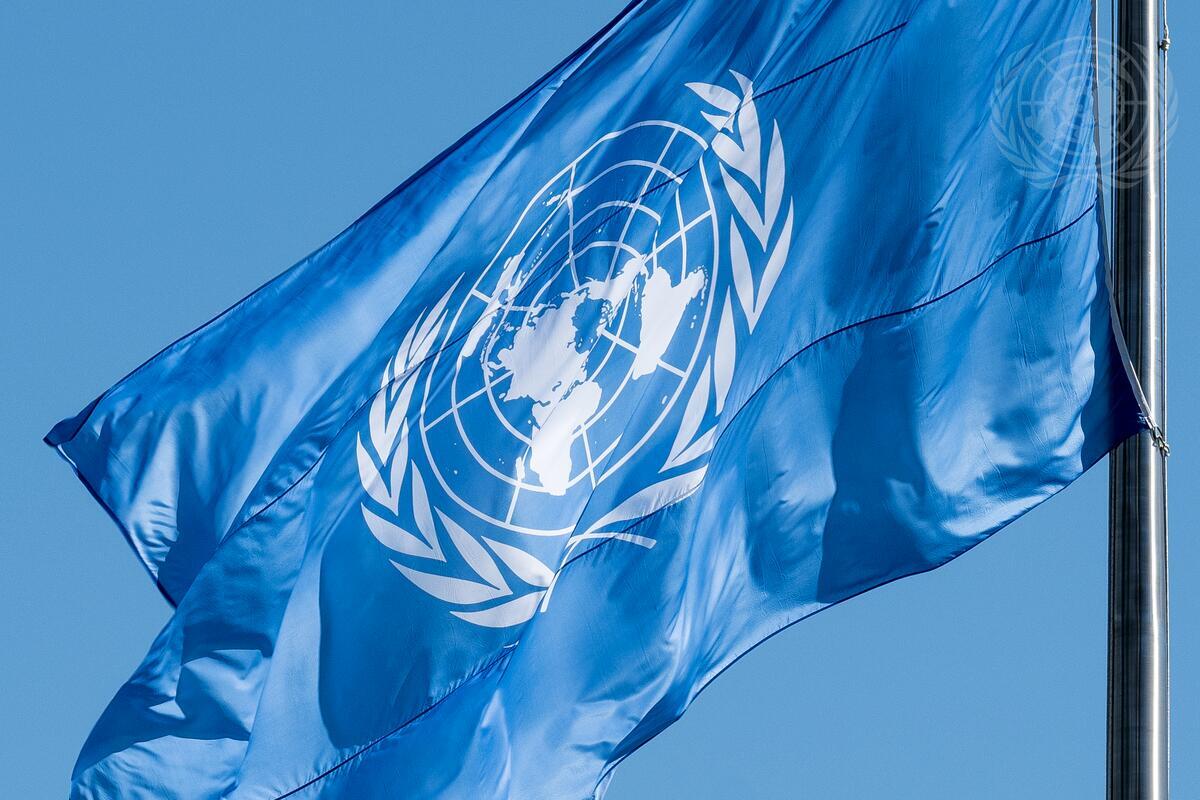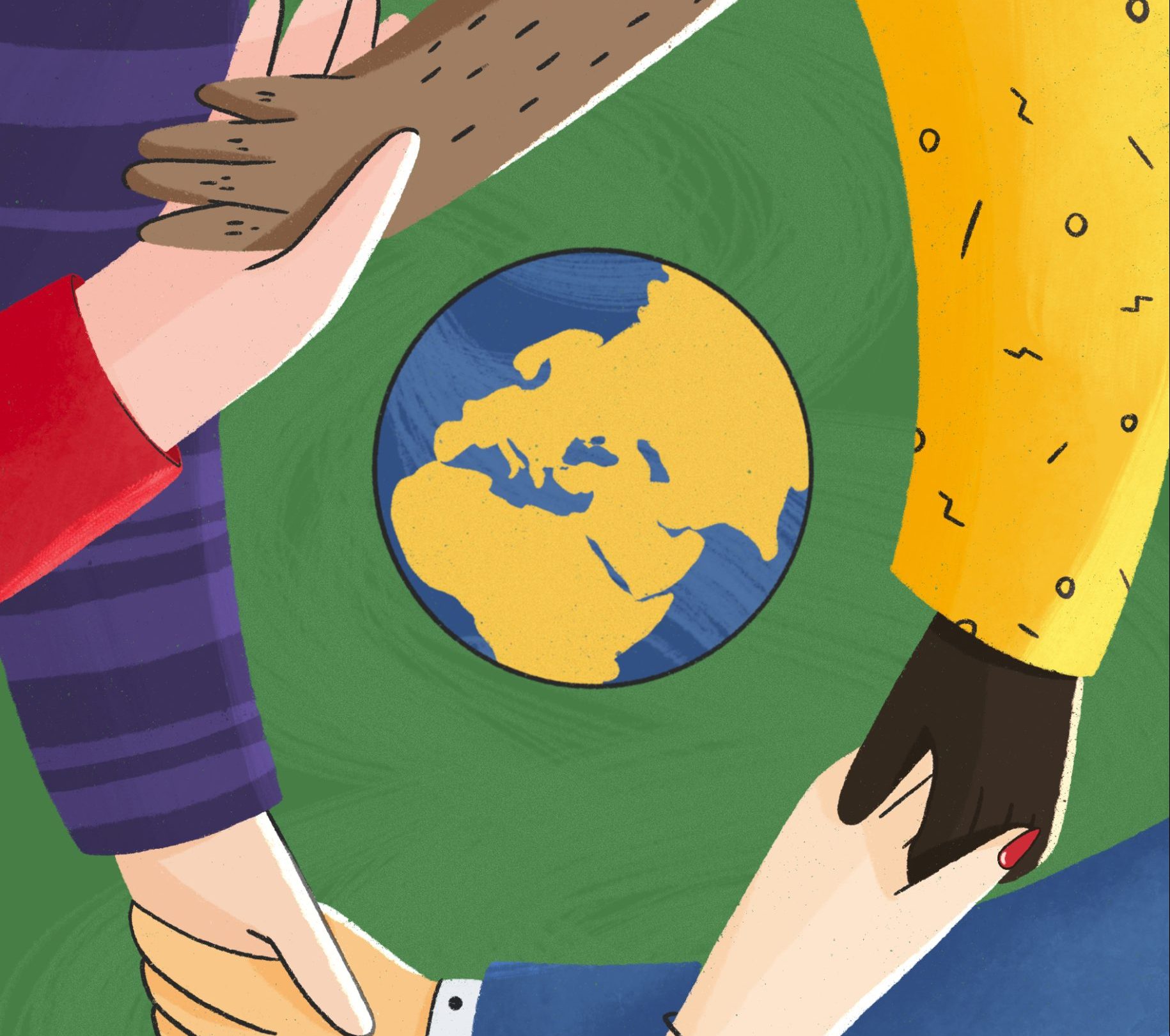© UN Photo/Loey Felipe

The multilateralism we need
Never have we needed a robust multilateral system so badly. One that can respond with efficiency and effectiveness to the great challenges of our times.
In the face of the triple planetary environmental crisis, of conflict, genocide and apartheid, of the consolidation of authoritarian ideologies and narratives around the globe, and the erosion of the rule of law and the closing of civic space, the challenges we all have to confront in the years ahead are overwhelming. Human rights defenders work on all these issues, fighting for dignity and justice in these increasingly restrictive and violent contexts.
Meanwhile, a number of States from all regions across the political spectrum are actively undermining the international human rights system for their own political gains. This is evidenced by the selectivity and double standards that dictate action, especially on accountability for atrocity crimes. For example, the lack of implementation of calls made by UN bodies, experts and international courts by certain powerful Western States regarding Gaza, by member States of the Organisation of Islamic Conference (OIC) regarding Xinjiang, and by some African States regarding Sudan.
While this political expediency has always been the de facto state of play, never has it been with as big a cost to the integrity of the UN human rights system. The ongoing genocide in Gaza and the impunity provided by a number of States has had the effect of putting the entire UN system into question. Furthermore, the threats and intimidation of United States lawmakers against the Prosecutor General of the International Criminal Court (ICC) and his family is an example of reprisals at the highest level. This has served to undermine not only the human rights mechanisms that are supposed to deliver justice, but also the confidence of human rights defenders and victims in their engagement with this system.
Nevertheless, at ISHR, we firmly believe that never have we had such need for a robust multilateral system. One that can respond with efficiency and effectiveness to the great challenges of our times.
For this to work, the system must be grounded in universal human rights law and values, centre rights holders, and respond to situations based on their merits.
The recently adopted ‘Pact for the Future’ falls short of these principles. While organisers hailed the Pact’s as the ‘most wide-ranging international agreement in many years’ covering both ‘entirely new areas’ and ‘issues on which agreement has not been possible in decades’, the absence of a dedicated human rights chapter among the broad themes guiding the 56 actions to which States have now committed is striking. The pact does not even mention ‘human rights defenders’. In fact, human rights are only explicitly cited in four of these 56 actions (7, 30, 35 and 46).
Despite the overall commitment to keeping vital multilateral structures relevant to our current challenges, the Pact for the Future and its annexes appear to us to miss various key targets. We therefore call on States to take the broad principles spelled out in the Pact and to apply them in ways that achieve a multilateral system which is inclusive, accessible, and responsive for rights holders, and, crucially, adequately resourced and fit for purpose.
Specifically, we call on States to:
- Recognise and protect human rights defenders. States should recognise that exercising the right to defend rights is integral to the realisation of all human rights, particularly the human rights of people and communities subject to various and intersecting forms of discrimination and oppression. States should commit to ensuring a safe and enabling environment for the work of human rights defenders and accountability for attacks and restrictions against them.
- Ensure the meaningful participation of civil society and human rights defenders, free from the fear of reprisals. States should support the meaningful participation of civil society in all UN bodies and processes, and reform the ECOSOC Committee on NGOs to ensure accreditation processes are fair, transparent, expeditious and non-discriminatory. States should also institutionalise hybrid modalities across the UN to enable inclusive participation, reduce environmental impacts, and overcome barriers such as visa denials, resource challenges, and accessibility for people with disabilities.
- Fund adequately the human rights pillar. States should prioritise securing adequate funding for the UN’s human rights pillar with the understanding that the promotion and protection of human rights is indispensable to development, peace and security. States must also commit to paying their assessed contributions without delay to ensure the effective functioning of the UN’s human rights bodies mechanisms, including civil society engagement with those bodies and mechanisms.
- Address the triple planetary crisis: make it a priority! States must implement meaningful and targeted measures to advance the right to a clean, healthy and sustainable environment. The measures should be taken in consultation and considering the compound and systematic discrimination and impact that Indigenous Peoples, Afro Descendant communities and other marginalised groups are suffering. States should address legislative or policy barriers to guarantee corporate accountability for wrongdoings related to environmental harm and other human rights violations related to their activities. States should also guarantee access to remedies and intergenerational justice for victims related to these violations.
- Reform the Security Council so it acts in the face of atrocity crimes. States must abolish the veto in the Security Council and, pending that, prohibit its use to stop action in circumstances where there is prima facie evidence of atrocity crimes. States should commit to pursuing accountability and ending impunity for atrocity crimes.
We have seen the limitations of a system centred on and led by States. In this moment of opportunity, the only way forward is one that is inclusive of all stakeholders, particularly human rights defenders and victims and survivors of violations. This is the ‘multistakeholderism’ we need!

